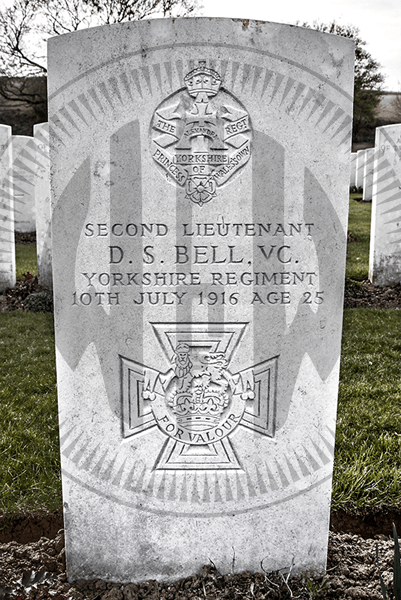SECOND LIEUTENANT DONALD SIMPSON BELL VC
Name:
Donald Simpson Bell
Regiment & Unit/Ship:
Yorkshire Regiment
9th Bn.
Date of Death:
10 July 1916
Age at Death:
25 years old
Buried or commemorated at:
GORDON DUMP CEMETERY, OVILLERS-LA BOISSELLE
IV. A. 8.
France
Awards:
Victoria Cross
Additional Info:
Son of Smith and Annie Bell, of Western Flats, Queen’s Rd., Harrogate; husband of Rhoda Bell, of Wilmslow, Cheshire.
Service Record:

Once purchased, it can be used for commercial purposes.
This small cost helps support the website.
To order, please contact me here.

